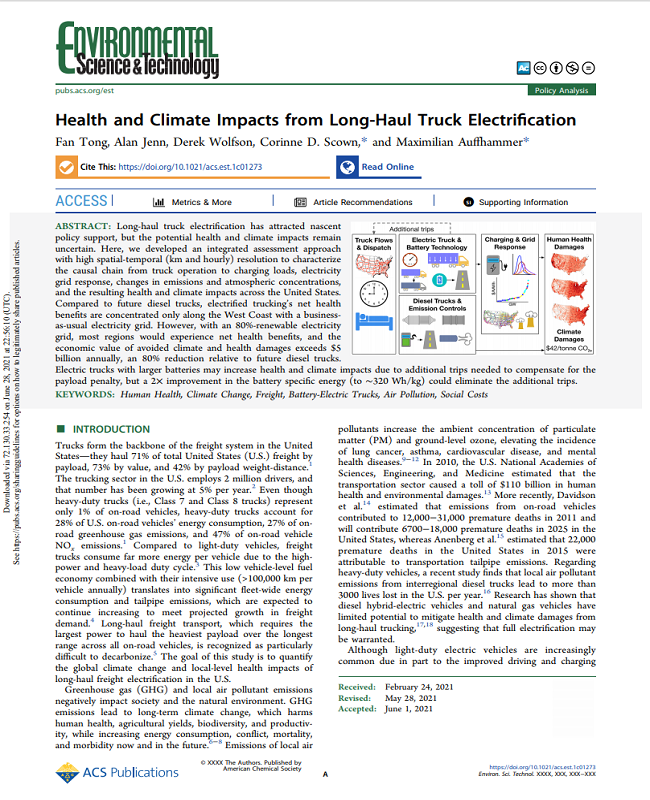Long-haul truck electrification has attracted nascent policy support, but the potential health and climate impacts remain uncertain. Here, LBNL researchers developed an integrated assessment approach with high spatial-temporal (km and hourly) resolution to characterize the causal chain from truck operation to charging loads, electricity grid response, changes in emissions and atmospheric concentrations, and the resulting health and climate impacts across the United States. Compared to future diesel trucks, electrified trucking’s net health benefits are concentrated only along the West Coast with a business-as-usual electricity grid. However, with an 80%-renewable electricity grid, most regions would experience net health benefits, and the economic value of avoided climate and health damages exceeds $5 billion annually, an 80% reduction relative to future diesel trucks. Electric trucks with larger batteries may increase health and climate impacts due to additional trips needed to compensate for the payload penalty, but a 2× improvement in the battery specific energy (to ∼320 Wh/kg) could eliminate the additional trips.
Preview the report here:
More About this Resource
Publisher: Lawrence Berkeley National Laboratory
Date: July 12, 2021
Type: Research Reports
Countries: United States
States: None
